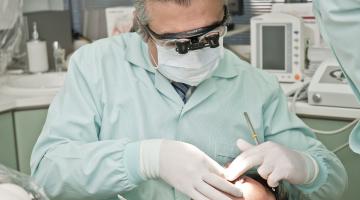Why a Gastroscopy Screening is Important and How You can Get One
The digestive system is one of the most important organ systems in our body. It is responsible for turning the food you eat into the energy and nutrients that are essential for life, and then turning the remaining waste into a solid package known as our stool. It is vital that we keep our digestive system healthy, and one way to do that is by getting a gastroscopy screening regularly.
What is a gastroscopy?
A gastroscopy is a medical examination done to examine the inside of the throat, esophagus, and stomach. This test is usually done to determine what’s causing certain symptoms related to the digestive system, such as sore throat or stomach pain. The procedure involves the use of a long, flexible tube called a gastroscopy with a tiny camera in the end that’s connected to an external screen. This tube is first inserted into the mouth and is slowly guided by your doctor into the esophagus and finally down the stomach.
While the gastroscope is on its way to your stomach, your doctor will be constantly examining the screen connected to the gastroscope camera to check for the health of your mouth, esophagus, and stomach. If he/she observes any tissue that needs to be removed, your doctor will take note of its location and size. Your doctor may also remove a tissue sample for biopsy, to check for stomach conditions like ulcer.
What is the purpose of a gastroscopy?
A gastroscopy can be done as an isolated medical test.However, it is very common to combine it with other procedures like a colonoscopy as a pre-screening package for your digestive system. A colonoscopy is another type of procedure that examines the condition of the large intestine (colon) and rectum. These pre-screening packages are done to check the overall health of the digestive system, treat digestive conditions and to check for the presence of cancer.
A gastroscopy is often done to check and diagnose the causes for certain digestive symptoms. These include the following:
- Indigestion, stomach pain and heartburn – These are very common digestive symptoms that can go away on their own. However, if these symptoms last for more than a week, or recur frequently, then getting a gastroscopy may help you identify what’s causing them.
- Vomiting blood–Also known as hematemesis, vomiting blood is a serious condition that could be a symptom for a more serious disease. A gastroscopy can find the cause of this symptom, whether it’s a tear in the esophagus or some bleeding in the stomach.
- Having a hard time swallowing or if there is pain during swallowing – Dysphagia, which is the medical term for this, is a symptom for many diseases such as GERD and cancer. A gastroscopy should be able to determine what’s causing the dysphagia so that your doctor can formulate an appropriate treatment plan.
- Recurring nausea and vomiting – Although this is a common occurrence, if these symptoms take a long time to disappear or if they keep reappearing after a couple of days, then you may want to get your digestive system checked out through a gastroscopy.
- Black stool–If your stool has a solid black or red-black color, then there is a big possibility that you may have some internal bleeding somewhere in your digestive tract. A gastroscopy will be able to check the upper part of your digestive tract, while a colonoscopy should be able to check the lower parts.
A gastroscopy can also be used as a part of a treatment procedure, particularly for conditions involving the upper digestive system. Some of the different treatments that can be done include the following:
- Remove abnormal growths like polyps, lumps, and tumors–During a gastroscopy, the doctor can also remove using special gastroscope attachments some growths in the digestive tract, such as polyps and lumps.
- Stop internal bleeding originating in the esophagus and stomach–A bloody stool or vomit can indicate some bleeding within the upper digestive tract, which can be stopped through a gastroscopy.
- Increase the width of the esophagus – If you have dysphagia, this treatment can be done to help alleviate your swallowing experience.
- Perform a biopsy – To be able to determine whether you have some sort of cancer in your digestive tract, the doctor may perform a biopsy and remove a small tissue sample. This sample will then be sent to a laboratory to test for the presence of cancer cells.
How do you get ready for a gastroscopy?
First, you will need to find a hospital or clinic where you will get the gastroscopy. You will then need to set an appointment for the procedure. They will ask you about why you are getting the gastroscopy as well as what medication you are currently taking.The final schedule will be communicated to you by the hospital or clinic, and they will instruct you on what to do and avoid to prepare for the gastroscopy.
When the day of the gastroscopy comes, you will have to avoid eating any food for at least 6 hours before the procedure. This is done to ensure that your esophagus and stomach is clear from any obstructions. When you get to the hospital or clinic, you will be given the choice of getting sedated or not. If you choose to be sedated, you should not feel any discomfort during the procedure, however you will need someone to accompany you during the procedure and to drive you home after.
The gastroscopy should take anywhere from 15 to 45 minutes, depending on various factors. If you chose to be sedated, there shouldn’t be any pain or discomfort while this happens.
What to do after a gastroscopy?
After the procedure, you will be sent to a room to recover, especially if you have been sedated. As soon as you feel better, you can go home immediately. However, you will need someone else to drive you back to your house.It will take a while for you to recover, and it is recommended that you take the next 24 hours to rest and recover. Avoid drinking alcohol and operating heavy machinery while you are still recovering.
Alpine Surgical Practice – Dr Aaron Poh, Consultant Surgeon
3 Mount Elizabeth
#17-16 Medical Centre
Singapore 228510
Phone: +65 6589 8929
Whatsapp: +65 8875 0080
More to Read:
Previous Posts:







